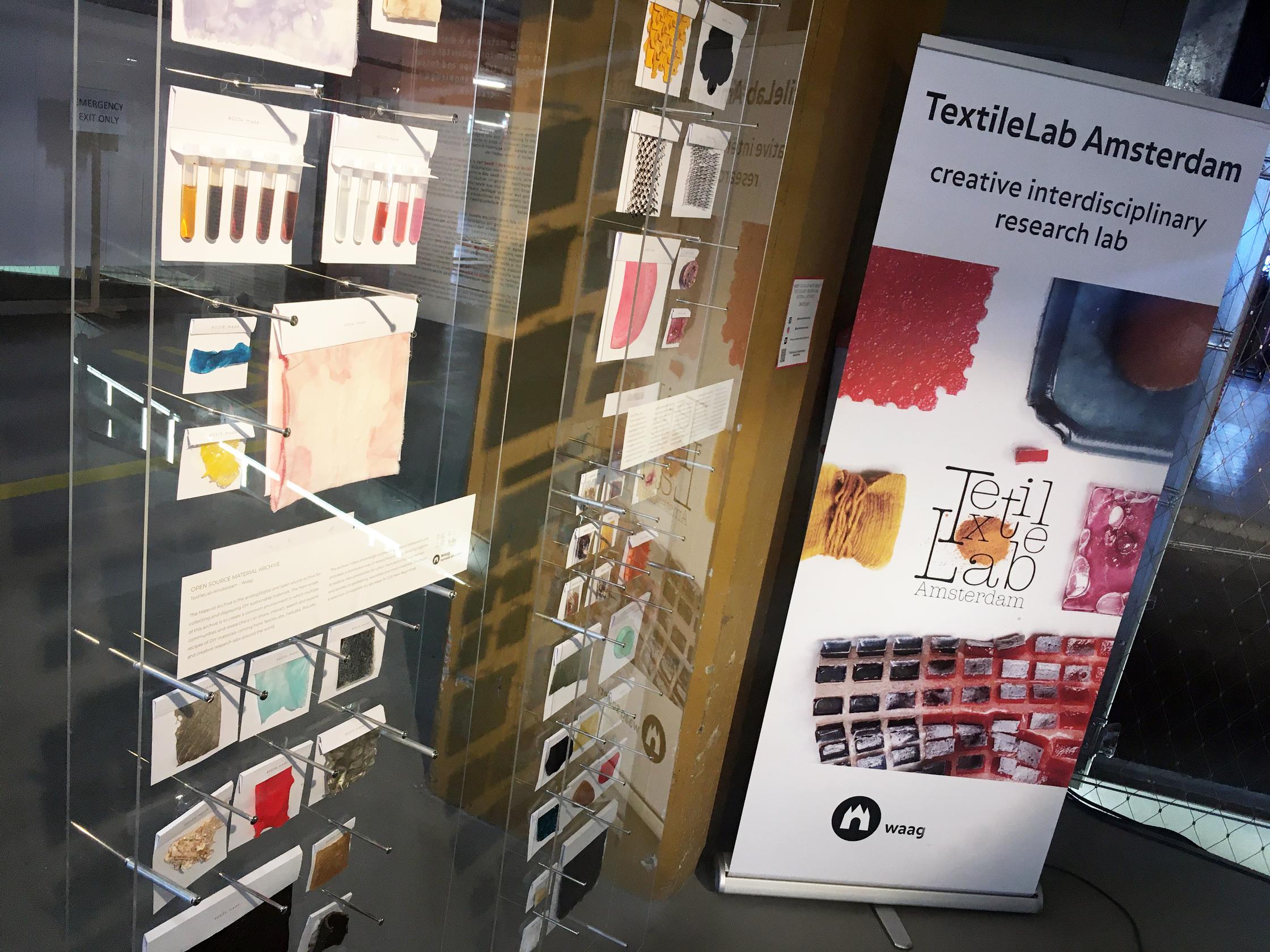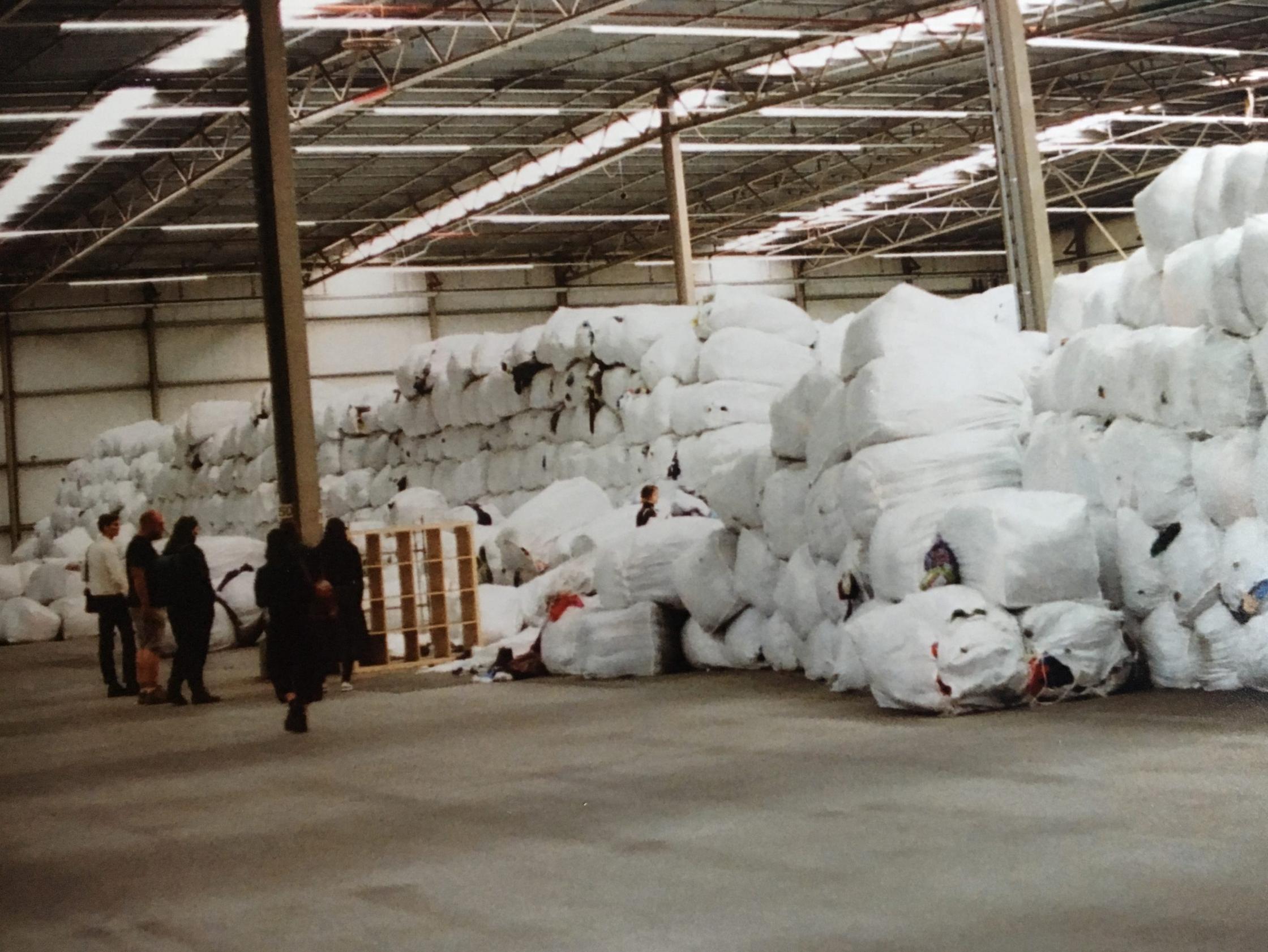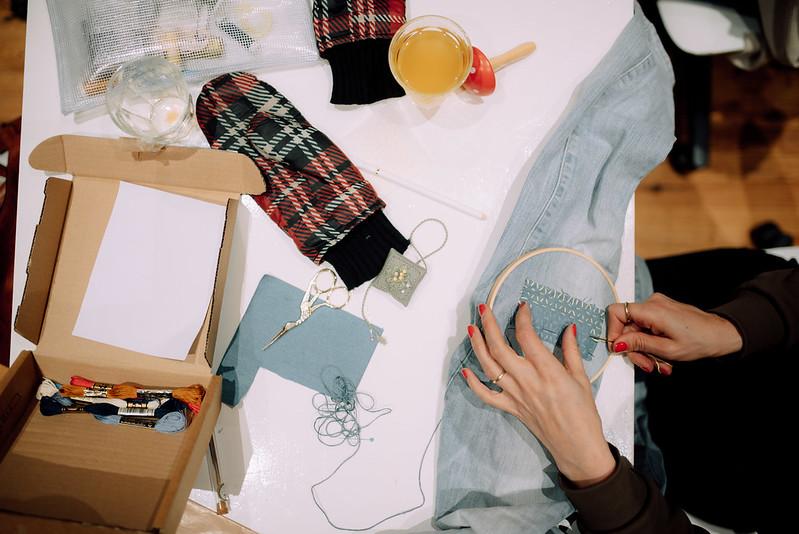Waag is about sharing. Therefore, our TextileLab showcased different open source, collaborative research projects during Dutch Design Week (DDW) for everyone to learn about textile innovation. We did so in collaboration with fashion researcher Julia Kaleta and students of the Master Industrial Design | KABK. The works presented proposed more sustainable alternatives to today’s material and production flows. We see materials as the ground for shaping new realities together.
One of the things on display was the lab’s material archive. In this hanging overview, we showcased results of several experiments for visitors to study. Some of these TextileLab experiments focus on influencing or altering existing material, like dying material by using specific bacteria. Other experiments focus on creating new material, like using Kombucha as a replacement for leather, or like using bioplastics to investigate properties and potential of a new material.
When visitors carefully inquired about the origins and process of creation of our samples, they were generally quite surprised when hearing: “Please feel free to study the back of the material archive display. There you can read exactly how you can make these samples yourself.” This often led to a combination amazement, grateful smiles and pictures being taken. These surprised reactions emphasise that an open approach to innovation in textiles is still far from a status quo.
Together with the KABK students’ material research, and Julia Kaletta’s Atlas of sustainable colours, we show what can already be done. We will go on to encourage others to apply these technological possibilities in their own socio-economic practices. By sharing our insights, we aim to work together and we aim inspire. We will go on to do so, because we need to take this work out of the lab, and into our closets.


